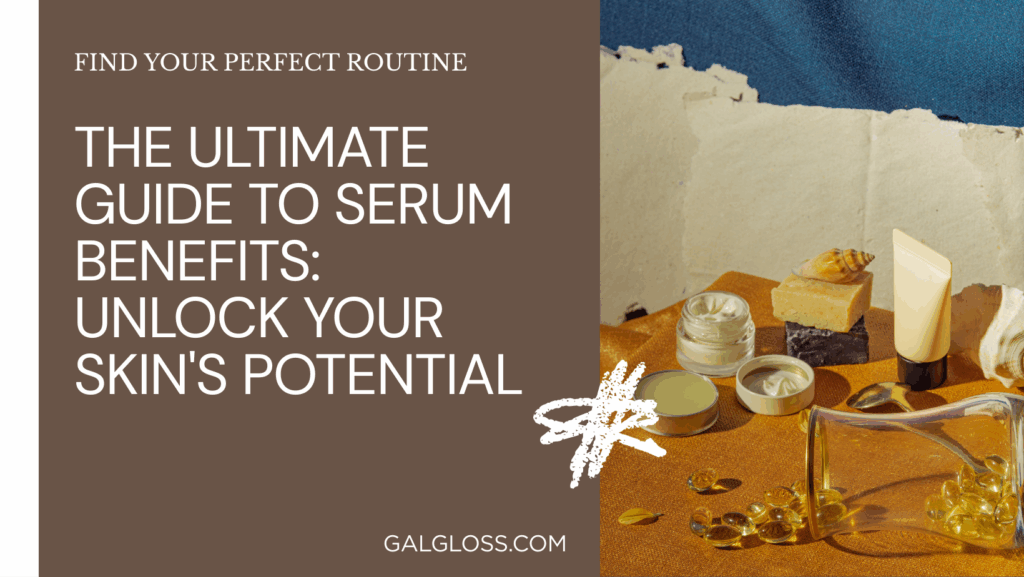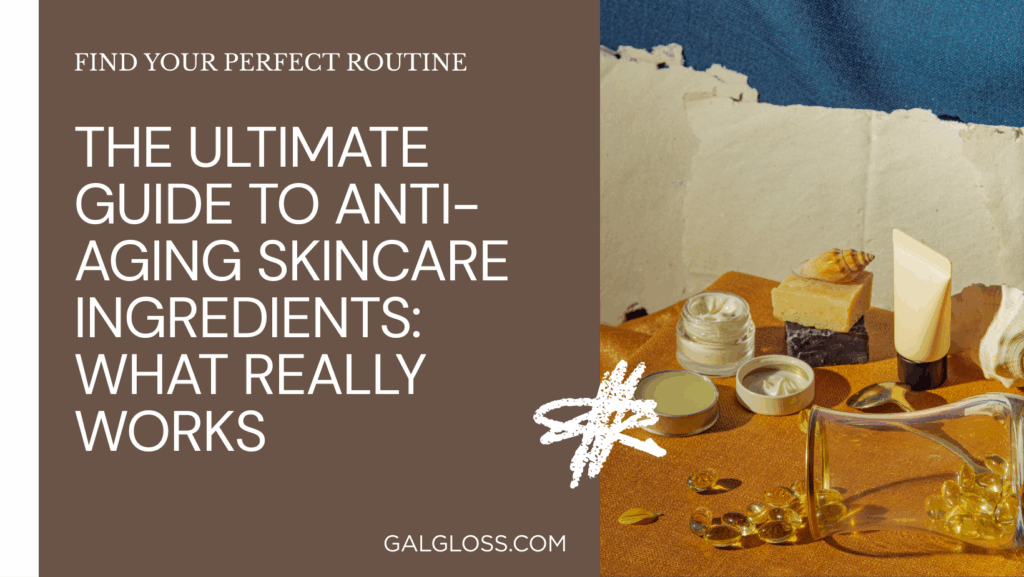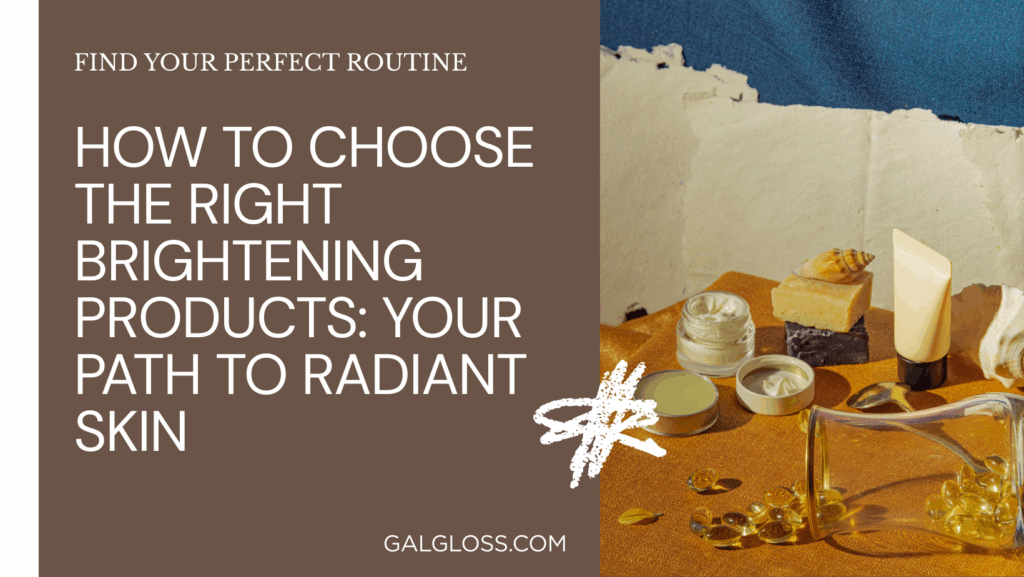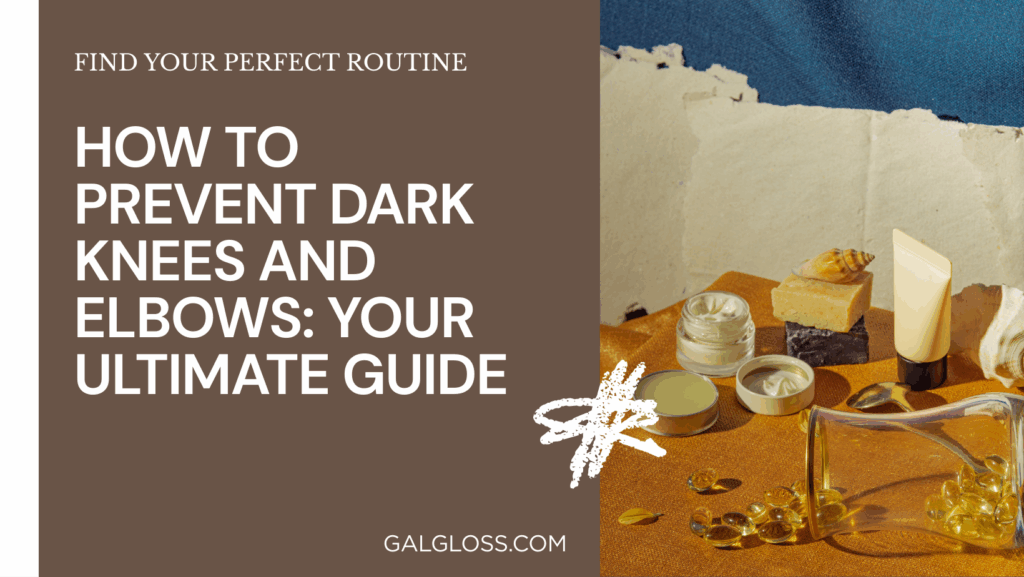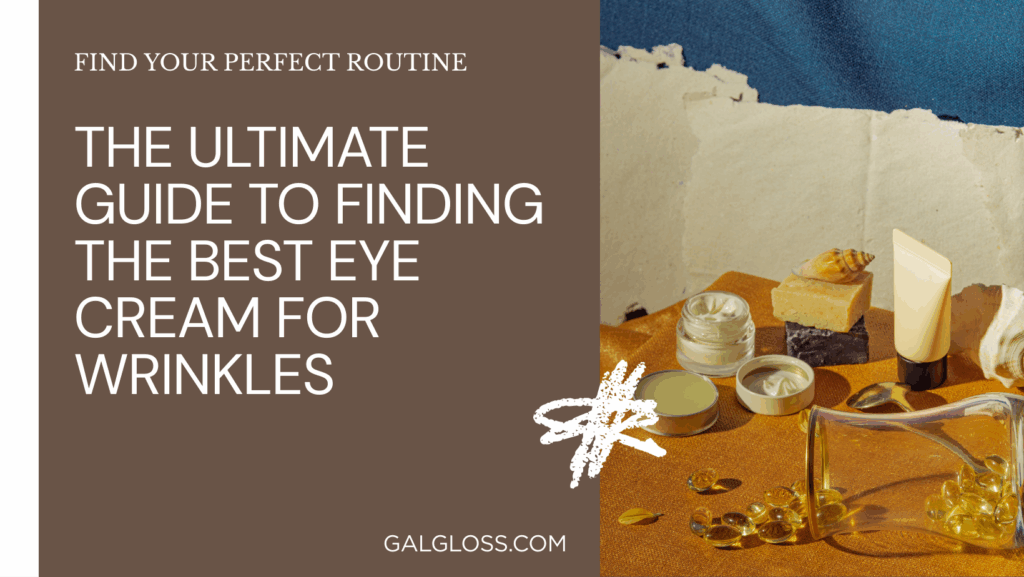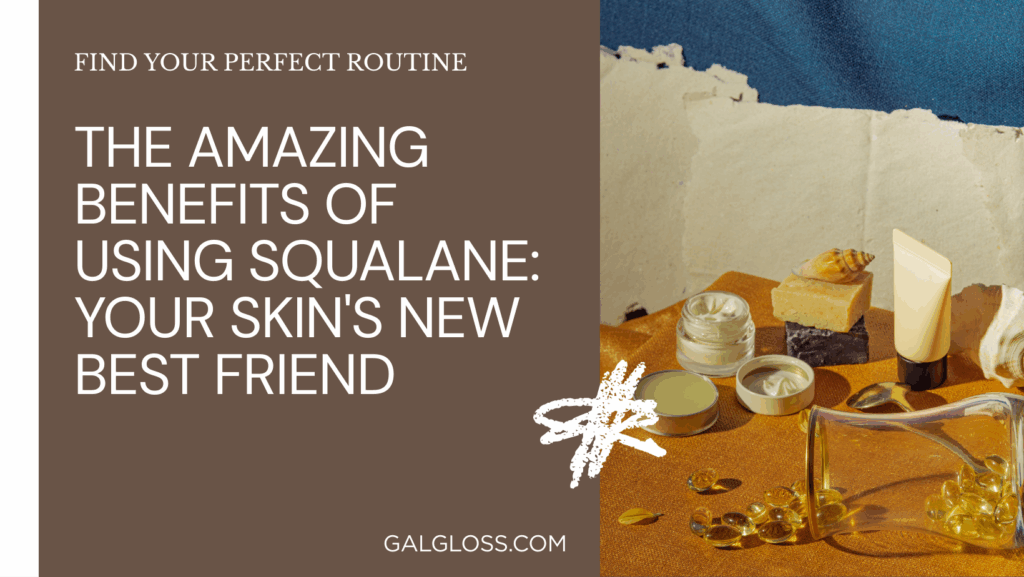Ever wondered why that $200 face cream promises to turn back the clock? Or how those “miracle” serums claim to erase wrinkles overnight? You’re not alone. The anti-aging industry is booming, with shelves upon shelves of products vying for our attention (and our wallets). But here’s the million-dollar question: what’s the real science behind these age-defying potions?
Let’s face it, we all want to keep our youthful glow. But with so many products out there, how do we separate the snake oil from the truly effective treatments? That’s where understanding the science comes in handy. It’s like having a secret decoder ring for your skincare routine!
Understanding Skin Aging
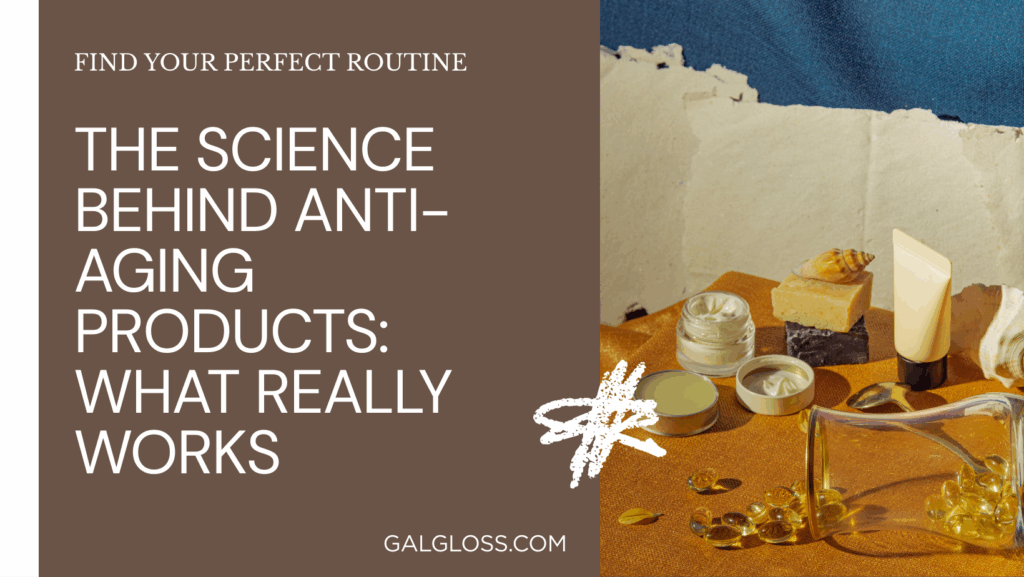
Before we dive into the world of anti-aging products, let’s talk about what actually happens to our skin as we age. It’s not just about a few wrinkles here and there – it’s a complex process that affects every layer of our skin.
As we get older, our skin:
- Produces less collagen and elastin
- Loses fat and becomes thinner
- Develops age spots and uneven pigmentation
- Becomes drier and less able to retain moisture
- Heals more slowly from damage
But here’s the kicker: not all ageing is created equal. There are two main types:
- Intrinsic ageing: This is the natural ageing process determined by our genes. It’s like our skin’s internal clock.
- Extrinsic ageing: This is caused by external factors like sun exposure, pollution, and lifestyle choices. Think of it as the wear and tear our skin faces from the outside world.
The good news? While we can’t stop intrinsic aging, we can definitely slow down extrinsic aging. And that’s where anti-aging products come into play.
Key Anti-Aging Ingredients and How They Work
Now, let’s get to the juicy stuff – the ingredients that make anti-aging products tick. It’s like a recipe for youthful skin, and each ingredient plays a specific role.
Retinoids: The Skin Rejuvenators
Retinoids, derived from Vitamin A, are the superstars of the anti-aging world. They work by:
- Increasing cell turnover
- Boosting collagen production
- Improving skin texture and tone
Think of retinoids as your skin’s personal trainer, pushing it to perform better and look younger.
Antioxidants: The Protective Shield
Antioxidants like Vitamin C, Vitamin E, and Niacinamide are your skin’s bodyguards. They:
- Fight free radicals that damage skin cells
- Brighten skin tone
- Reduce inflammation
Imagine antioxidants as tiny superheroes, battling the villains that try to age your skin.
Peptides: The Communicators
Peptides are like the skin’s messengers. They signal your skin to produce more collagen and elastin. It’s as if they’re whispering to your skin, “Hey, time to make more of that youthful stuff!”
Hyaluronic Acid: The Moisture Magnet
Hyaluronic acid is your skin’s sponge. It can hold up to 1000 times its weight in water, keeping your skin plump and hydrated. Think of it as your skin’s personal water reservoir.
Alpha-Hydroxy Acids (AHAs) and Beta-Hydroxy Acids (BHAs): The Exfoliators
These acids gently remove dead skin cells, revealing fresher, younger-looking skin underneath. It’s like giving your skin a fresh start, sloughing off the old to make way for the new.
The Role of Collagen and Elastin in Anti-Aging
Collagen and elastin are the dynamic duo of youthful skin. Collagen provides structure and firmness, while elastin gives skin its elasticity. As we age, our bodies produce less of both, leading to sagging and wrinkles.
Many anti-aging products aim to boost collagen and elastin production. It’s like giving your skin a pep talk, encouraging it to build more of these crucial proteins.
Combating Free Radicals and Oxidative Stress
Free radicals are unstable molecules that damage our skin cells, leading to premature ageing. They’re like little troublemakers, wreaking havoc on our skin’s DNA.
Antioxidants in anti-aging products neutralise these free radicals, protecting our skin from damage. It’s a constant battle, with antioxidants acting as our skin’s defensive army.
The Importance of Sun Protection in Anti-Aging
Here’s a shocker: up to 90% of skin ageing is caused by sun exposure. UV rays damage our skin cells and break down collagen and elastin. It’s like our skin is under constant attack from the sun.
That’s why sunscreen is the ultimate anti-aging product. It’s not just for beach days – it should be a daily habit. Think of it as your skin’s shield, protecting it from the sun’s ageing effects.
Skin Barrier Function and Anti-Aging
The skin barrier is like our body’s bouncer, keeping good stuff in and bad stuff out. As we age, this barrier can become compromised, leading to dryness, irritation, and accelerated aging.
Many anti-aging products focus on supporting the skin barrier with ingredients like ceramides and fatty acids. It’s like giving your skin’s bouncer some backup, helping it do its job better.
Hydration and Anti-Aging
Hydrated skin is happy skin. When our skin is well-hydrated:
- Fine lines and wrinkles are less noticeable
- Skin appears plumper and more youthful
- The skin barrier functions better
That’s why so many anti-aging products focus on hydration. It’s like giving your skin a big drink of water, helping it look and function at its best.
Advanced Anti-Aging Technologies
The world of anti-aging is always evolving, with new technologies emerging all the time. Some cutting-edge approaches include:
- Nanotechnology: Delivering ingredients deeper into the skin
- Liposomal delivery systems: Enhancing ingredient absorption
- DNA repair enzymes: Fixing damage at the cellular level
These technologies are like upgrading from a flip phone to a smartphone – they make anti-aging products work smarter, not harder.
Natural vs. Synthetic Ingredients in Anti-Aging Products
The debate between natural and synthetic ingredients is ongoing. Natural ingredients often appeal to our desire for “clean” beauty, while synthetic ingredients can be more stable and effective.
The truth is, both have their place in anti-aging products. It’s not about natural vs. synthetic – it’s about what works best for your skin. Think of it like your diet – a balance of whole foods and fortified products often works best.
The Science of Anti-Aging Routines
Creating an effective anti-aging routine is like cooking a gourmet meal – it’s all about using the right ingredients in the right order. A typical anti-aging routine might look like this:
- Cleanse
- Tone
- Apply antioxidant serum
- Use eye cream
- Apply moisturiser
- Finish with sunscreen (in the morning)
Layering products correctly ensures each ingredient can do its job effectively. It’s like building a house – you need a strong foundation before you can add the fancy stuff.
Beyond Topical Treatments: Holistic Approaches to Anti-Aging
While creams and serums are important, true anti-aging goes beyond what we put on our skin. Factors like diet, sleep, stress management, and exercise all play crucial roles in how our skin ages.
Eating a diet rich in antioxidants, getting enough sleep, managing stress, and staying active can all contribute to healthier, younger-looking skin. It’s like giving your skin a support team, helping it look its best from the inside out.
Debunking Anti-Aging Myths
The world of anti-aging is full of myths and misconceptions. Let’s bust a few:
- Myth: Expensive products always work better
- Truth: Price doesn’t always equal effectiveness. Look at ingredients, not price tags.
- Myth: You need a separate cream for every skin concern
- Truth: Many ingredients address multiple concerns. Simplicity often works best.
- Myth: Anti-aging products work overnight
- Truth: Skin renewal takes time. Patience is key!
The Future of Anti-Aging Science
The anti-aging field is constantly evolving. Some exciting areas of research include:
- Stem cell technology
- Epigenetics and personalised skincare
- Microbiome-focused treatments
Who knows? The fountain of youth might be closer than we think!
Conclusion
Phew! We’ve taken quite a journey through the science of anti-aging, haven’t we? From understanding how our skin ages to exploring the latest in anti-aging technology, we’ve covered a lot of ground.
So, what’s the takeaway? The science behind anti-aging products is complex, fascinating, and ever-evolving. While there’s no magic potion that will completely stop ageing (sorry, folks!), there are definitely products and ingredients that can help our skin look its best as we age.
Remember, the key to effective anti-aging is:
- Understanding your skin and its needs
- Using scientifically-backed ingredients
- Being consistent with your skincare routine
- Protecting your skin from sun damage
- Taking a holistic approach to skin health
At the end of the day, aging is a natural process. Anti-aging products aren’t about stopping time – they’re about helping our skin age as gracefully as possible. It’s like giving our skin the tools it needs to put its best face forward, no matter our age.
So the next time you’re faced with a shelf full of anti-aging products, you’ll be armed with the knowledge to make informed choices. And remember, the best anti-aging routine is one that makes you feel confident and comfortable in your own skin. Here’s to ageing wisely and beautifully!
